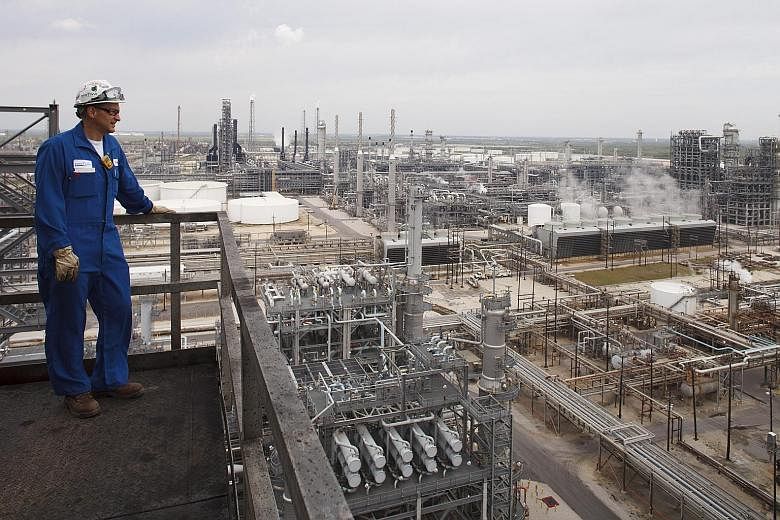WASHINGTON • If Saudi Arabia follows through on its recent threat to sell off its investments in the United States, the financial manoeuvre could be painful - mostly for Saudi Arabia.
The kingdom has pumped some of its oil profits into the US, acquiring billions of dollars in Treasury securities and investments that include a giant oil refinery in Port Arthur, Texas, and a US$10 million (S$13.4 million) stake in an Arkansas company that makes industrial lubricants.
All of that could be sold off if the Congress passes a Bill allowing Saudi Arabia to be held responsible in American courts for any role in the Sept 11, 2001 attacks, the Saudi government warned last week.
Such a fire sale might roil financial markets or cause problems for firms that lost funding, but experts said it is hard to imagine a significant or lasting impact on the US economy. Global investors continue to shovel money into the US; if the Saudis go, the experts said, others will take their place. But a sell- off could be self-defeating for Saudi Arabia. The Port Arthur refinery highlights the cost of pulling back.
The refinery is owned by Motiva Enterprises, a joint venture between Royal Dutch Shell and Saudi Aramco, the state-owned oil giant. Last month, Aramco announced a deal to take full ownership of it.
The Saudis might be able to sell the refinery, but they would lose a strategic investment.
"For a producer that big, you have to be in every market in the world to place your oil," said Ms Elizabeth Rosenberg, director of the Energy, Economics and Security Programme at the Centre for a New American Security.
There is no comprehensive public accounting of the Saudi government's investments in the US, although US officials said US$750 billion is a plausible figure. The single largest chunk of that money is probably invested in Treasury securities.
The Treasury Department said a group of 15 "oil-exporting" nations, including Saudi Arabia, held a total of US$281 billion in Treasuries in February. It is clear that Saudi Arabia's holdings are only a small share of the roughly US$14 trillion in Treasury securities not held by the federal government.
There is little danger from Treasury sales by a specific country, so long as foreign demand in aggregate remains strong. A broader sell-off could be more dangerous, but those worries have ebbed. The demand for Treasuries has seemed insatiable in recent years.
Still, Professor Francis Warnock, an expert on international economics at the University of Virginia, said there was a long-term risk.
"If the Saudis do it, others might do it as well," he said.
"To me, that's the bigger issue. If we're in a world where foreign governments think more carefully about holding US assets, then we're in a very different world."
NEW YORK TIMES

